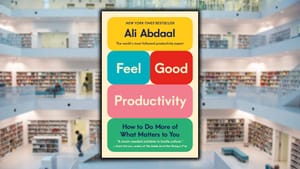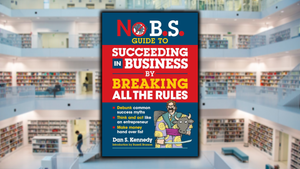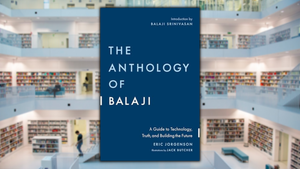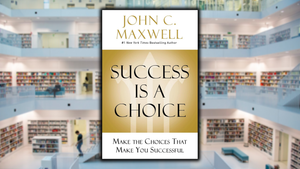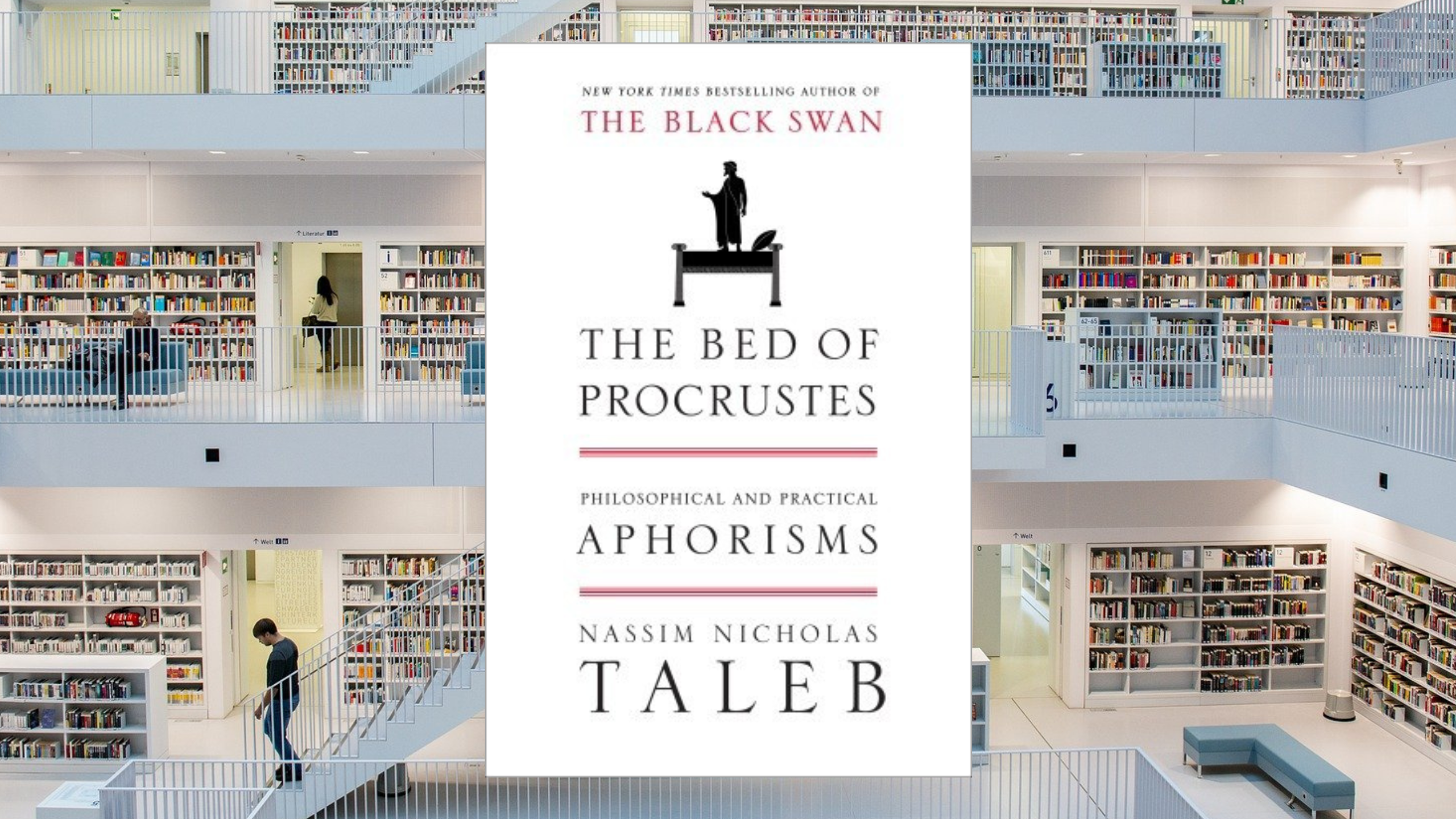
Summary:
This Book is For:
- Uncommonly inquisitive thinkers who love to be surprised whenever they pick up a new book.
- People looking for explosive insights that will keep them thinking about what they just read for the rest of the day.
- Anyone looking to understand their world in a completely new way.
You thought you knew exactly how the world works. You thought you had the major answers all figured out, and that your personal picture of reality was fully updated. But then, you happen to read just one perfectly-crafted aphorism, quote, or sentence, and then you realized that "Yes! Actually, the world is like that!"
Now imagine an entire book that's like that, containing more than 500 such lightning bolts to the prefrontal cortex, and you'd get something like The Bed of Procrustes, by Nassim Taleb.
It's a collection of aphorisms (memorable expressions of a general truth or principle), that investigate opacity, luck, uncertainty, probability, human error, risk, and decision-making in a world we don’t understand. It's also extremely thought-provoking and wise, with valuable insights concerning every vital part of life that we deal with each day.
Alright, so why "Procrustes"? Well, in Greek mythology, Procrustes was an innkeeper who had a stronghold on Mount Korydallos at Erineus, on the sacred way between Athens and Eleusis. He would invite visitors to spend the night, except that if the visitor didn't fit the bed - and they never did - he would either stretch them if they were too short, or hack off their limbs if they were too tall, in order to make them fit. He continued his reign of terror until he was captured by Theseus, who "fitted" Procrustes to his own bed.
I know, Greek myths are awesome! But in this book Nassim Taleb makes the larger point that we are all like Procrustes in our daily lives. As he says:
“We humans, facing limits of knowledge, and things we do not observe, the unseen and the unknown, resolve the tension by squeezing life and the world into crisp commoditized ideas, reductive categories, specific vocabularies, and prepackaged narratives, which, on the occasion, has explosive consequences. Further, we seem unaware of this backward fitting, much like tailors who take great pride in delivering the perfectly fitting suit - but do so by surgically altering the limbs of their customers."
We each believe that our view of the world is the correct one, and we change our facts to fit our theories, instead of our theories to fit the facts. We're stretching and hacking what we see, hear, and perceive, and in the process we're doing things like inventing diseases to sell drugs, defining intelligence as what can be tested in the classroom, trying to mold society into our tight little theories, and modifying humans to fulfill the promises of technology.
Taleb is trying to get us to stop squeezing life into neat little packages and pre-constructed narratives, and instead come to terms with what we don't know. So, among the 500+ aphorisms in the book, there are tons of big ideas concerning love, happiness, ethics, success, randomness, chance, religion, and everything else that humans care about.
The aphoristic form is perfectly suited for the purpose of getting us to question our received opinions, because the moment of insight comes on suddenly and catches us off guard. It's not what we were expecting. With short, almost tweet-like brevity, huge concepts are broken down into immediately digestible sentences, and we suddenly "get it."
That being said, I will caution against reading my commentary in the Key Ideas section before you've allowed yourself some time to sit with the aphorisms yourself for a few minutes at least. This is not a book to be read quickly, even though you could finish it in an hour or so if you really wanted to. It's kind of like the Tao Te Ching in that way: you can read it in an hour, but you could study it for a lifetime.

Key Ideas:
#1: Who Wants to Be Wise?
“They will envy you for your success, for your wealth, for your intelligence, for your looks, for your status - but rarely for your wisdom."
So often in life, the things actually worth striving for and cultivating are not what most people actually pursue. They want to tell you how much their new car set them back, but they won't talk about their charitable giving - if it exists. They'll want to brag about their SAT scores but will place no value on the act of being kind to someone who is unable to reciprocate. This is all backward!
In much the same way, wisdom is one of those things that most people won't envy you for - except that it's perhaps one of the only things that make life worth living. Maybe it's because so few people envy wisdom that so few people actively pursue it, but you can begin to reverse this dynamic today.
You can pursue wisdom - not because it will look good on a resume, but because in the long term, wisdom is what's going to make your life better. Many people know this at least unconsciously, but we postpone it until later when we can finally "get around to it." It's like that Saint Augustine quote: "Lord, make me pure. But not yet!"
Aphorisms are about making the intangible tangible and the abstract concrete in the here and now. It's a shock to your mental and intellectual system that will show you, immediately and intuitively, what's really important in life, what's true, and how you should live.
#2: Interesting Ideas
“An idea starts to be interesting when you get scared of taking it to its logical conclusion."
There are all sorts of ideas that only begin to become interesting when they start to scare you and intimidate you. The one that jumps out at me immediately is the idea of doing your best. What a commonplace, simple little idea. And yet how explosive its consequences!
What would it actually look like to do your best? To give everything you're capable of giving, and to make your life what it could be? Your best is so much more than you know - everyone's is - and if you were actually to commit to realizing the limits of your abilities - actually going for it? That's intimidating.
Jiddu Krishnamurti had a ton of ideas that change their character when taken even further as well. For one thing, he put forth the idea that most parents don't actually love their children. They may be ambitious for them, eager for their children to succeed out there in the world and make themselves look good as parents, but love is absent. Take that idea to its logical conclusion! Many people would have to change their entire lives!
#3: Learning to Say "No"
“Never say no twice if you mean it.”
"No" is a complete sentence and it can be final. You don't have to explain yourself once you've said no, and if you keep on saying it, it just weakens the force of that initial statement. Justifications, expansions, apologies, backtracking, and compromising...people take these as signals that you are open to negotiating your position. Don't be. Say no, mean it, and end the discussion there.
#4: The Definition of Aging
“The only objective definition of aging is when a person starts to talk about aging.”
Never let an old person move into your body! That's the beginning of the end, because it's a very difficult process to stop once it's begun. On a personal level, my parents are 84 (my dad) and 74 (my mom), but they don't act their ages at all.
Sure, they don't move like they used to, and denying the reality of aging isn't really the answer, but I'm often struck by the number of people that are much younger than they are in years, but who act much older!
Don't cling to youth but don't talk about aging too early. There's a very short, excellent book by the Roman statesman, Cicero, called How to Grow Old that I can recommend, and he talks about the realities of aging as well. But a happy and healthy old age begins in youth, and old age will come in its own time. Old age and death is the rule; youth and vigor are the fleeting aberrations. So enjoy them!
#5: The Lindy Effect
“Billions of years allow most of what is fragile to break.”
The Lindy Effect is a theory that states that the longer something has existed in the past, the longer it will continue to exist in the future. Fads come and go, but we've been using chairs and plates for thousands of years, so they're likely to continue being made and used for a long, long, time. Just watch: I'll write that, and you'll be reading this in 2075 and won't know what a chair is; but odds are, you will. That's the Lindy Effect.
Taleb is concerned with robustness, resilience, and antifragility - the questions of what breaks because of disorder, what gains from disorder, and what remains the same. Rude people have always existed, so they're likely not going anywhere either! No matter what, they're robust. Unfortunately.
But what I find interesting to consider is the fact that the universe has also been around for an exceptionally long time. It's been around for billions of years, and so it's likely to continue on for billions of years as well, long after the rude people and the kind people have passed on. The universe is everything: fragile, robust, and antifragile.
#6: How to Tell If You Are Free
“You are free in inverse proportion to the number of people to whom you can't say 'fuck you.' But you are honorable in proportion to the number of people to whom you can say 'fuck you' with impunity but don't."
It's strange to hear Taleb swear, but it happens sometimes. He calls it "costly signaling of freedom," meaning that "getting away with" swearing means that he's free and doesn't have to answer to anyone. He can say "fuck" with impunity, basically.
Although, the sentiment at the heart of this aphorism is an honorable one. Sure, he could go around telling people off and probably face few if any consequences. But his personal honor and dignity would be tarnished by doing so. The best of both worlds is to be free to speak your mind - to anyone, in any situation - and yet always to opt for kindness and politeness.
If I were to add to this, I would reference The Great Rat Race Escape, by MJ DeMarco, which we've covered at the Stairway to Wisdom before. MJ advises that you never put yourself in any position where one single person is in a position to ruin you. If someone can ruin your life with one decision, then you're not free.
#7: On Ad Hominems
“You never win an argument until they attack your person.”
An ad hominem argument is a logical fallacy by which you attack the person you're arguing with instead of the argument itself. If you can't think of any logical reason why they're wrong, and instead just call them "dumb," you've committed a logical fallacy and ceded victory to the other person. It means that you can't refute what they've said, so you've just resorted to childish namecalling.
As soon as this happens to you, however, you know that you've won the argument! They have nothing to say, no counterargument, nothing to defeat you with, so the only thing that they can do is insult you. It still doesn't make them right, though!
#8: Let Them Have This One
“It is a very powerful manipulation to let others win the small battles.”
This simple idea is one of the foundations of my success. Seriously! When you can give up the need to be seen as "winning," or to be "right," then you're free to do what actually matters. Let me explain.
In The Laws of Human Nature, Robert Greene points out that most people aren't really paying attention to you at all - at least not to the extent that we normally assume they are. People are busy; they have their own lives, concerns, goals, and problems, and nobody really cares what you're doing at all. This gives you a ton of room to maneuver, and it is a powerful manipulation to be able to capitalize on this.
Just as a quick example: I used to spend hours and hours reading every night at work when I worked as a security guard. To the outside world, I was just "killing time." But to me, I was willing to make it look like I was "losing," when in fact I was doing exactly the correct thing that was going to lead to my eventual success.
If I was really concerned with how powerful people thought I was, or successful, or whatever else, then I would never have received that gift of time to read all those fantastic books. And you might not be reading this today! Most people aren't paying attention. Use this, manipulate the situation to benefit you, and secure your eventual victory.
#9: Get Lost
“We need to feel a little bit lost somewhere, physically or intellectually, at least once a day.”
We think we know how to the world works, but it is so much more mysterious and complex than we could ever imagine. It's so easy to lose sight of this, the more we get caught up in our ego battles, our rightness, and all the things we think we know.
A better strategy is to consciously seek wonder, complexity, and awe. Seek different. Maybe read a book in some other genre that you never read, or spend time getting to know someone from a strata of society you don't ordinarily come in contact with. Study something different than what you went to school for, or try a sport that you've never taken an interest in before. Be a beginner again, and shake yourself up.
If you stick with what and who you know, and you never venture outside that circle, your life will remain small. Too much safety is dangerous, because then you start to feel as though you actually understand the world and what's going on here.
Libraries make you feel lost, in the best possible way. If you want to feel small and dumb (except, you know, in a good way), stand in the middle of a giant library and take in all the stacks of books that you've never even heard of, never mind read. Getting lost is how you fall in love with the world all over again.
#10: Fortune Punishes the Greedy and Very Greedy Alike
“Fortune punishes the greedy by making him poor and the very greedy by making him rich."
This is one of my favorite aphorisms in the whole book; I think it's subtle and brilliant. For the very greedy, being rich will never be enough. That's their "punishment," so to speak. No matter how much they accumulate, they will always suffer, because they want more.
It's like that great story that Kurt Vonnegut told about he and his friend Joseph Heller (the author of Catch-22) at that party held by a hedge fund manager on Shelter Island. Basically, Kurt's trying to needle Joe a little bit, and so he tells him that their host, the hedge fund manager, made more money in a single day than Heller had ever earned from the publication of Catch-22 and would probably ever earn in his lifetime.
Heller answers, "Yes, but I have something he will never have." Wondering what that could possibly be, Kurt Vonnegut asks his friend what he means.
And Heller just says, "Enough."
That's exactly what Taleb understands! Greed is a terrible curse, and more will never be enough.
#11: The True Measure of Wealth
“‘Wealthy’ is meaningless and has no robust absolute measure; use instead the subtractive measure 'unwealth,' that is, the difference, at any point in time, between what you have and what you would like to have."
This is such great advice, and it instantly calls to mind The Almanack of Naval Ravikant, which I've covered in the Stairway to Wisdom before too. There are literally billions of people to whom you could compare your wealth, but it's all relative. If you want to feel great about yourself, compare yourself to the billions of people in the world barely scraping by; or if you want to feel horrible about yourself, compare yourself to the people on the Forbes list. It's all nonsense.
By "robust measure," Taleb just means some objective way to using your bank balance to tell how wealthy you are; it's always going to be in comparison with someone else, when that's just setting yourself up for stress and anxiety, or worse.
A much better idea is to look at what you have, versus what you want. If those two lists are fairly similar, congratulations! You're wealthy! As Henry David Thoreau said in Walden (one of my favorite books!), a man is rich in proportion to the number of things he can let alone. And Socrates, that ancient Greek philosophical hero, was known to frequent the marketplace, pointing at the stalls full of items and possessions, and call out, with arms outstretched, "Look at all these things I don't need!"
#12: Succeeding in Life
“To succeed in life requires a total inability to do anything that makes you uncomfortable when you look at yourself in the mirror."
I'm so glad that Taleb said this, and he's absolutely right. They say that a clean conscience is the softest pillow, and it's true! Real success cannot be earned at the price of your integrity, dignity, or self-worth. Call it the "mirror test." If you think you've won in life, but what you had to do in order to win prevents you from being able to look at yourself in the mirror, then you haven't really won.
#13: Reverse Role Models
“People focus on role models; it is more effective to find anti-models - people you don't want to resemble when you grow up."
I think it's healthy to have both, but this is excellent advice. I have a ton of role models (I literally keep a list of my role models, including what I admire them for, and I review it often), but it's good to have reverse role models too! Like Taleb says, they are people you don't want to resemble when you grow up.
I won't name any of my reverse role models - and some of them I've only met once or twice - but you'll know when you've found a suitable reverse role model. They'll behave in ways that make you feel embarrassed for them, or make you feel terrible, etc., and you'll pledge never, ever to become anything like them.
#14: Are You in Control of Your Life?
“A heuristic on whether you have control over your life: can you take naps?”
I love this one too, and it goes back to what Taleb has been saying about freedom. If someone can tell you what to wear, when to show up someplace, and what to say - or not say - once you get there, then you're not free. Which is fine; everyone starts somewhere, but the goal is to increase your personal freedom until nobody can ruin your life with one decision, you don't have to explain why you did something, and you can take naps during the day whenever you get tired!
#15: No Empty Words
“Remove all empty words from writings, resumes, conversation, except when they aim at courtesy."
This is excellent writing advice! It's also powerful advice for succeeding with people. The Nobel Prize-winning novelist Ernest Hemingway was known for his iceberg theory, or the idea that the most powerful writing leaves much unsaid. He was known for short, simple sentences that contained profound depth, and by removing words he could make his stories more impactful for the reader.
Directness and being economical with your words will also make you more persuasive (in much the same way that you shouldn't repeat yourself when you say, "No"). Instead of going around and around what you have to say, say it directly, with conviction, and, most importantly, with kindness and courtesy.
#16: Conscious Ignorance
“Conscious ignorance, if you can practice it, expands your world; it can make things infinite.”
Reading a lot of books doesn't actually make you smarter. Really, all it does is make you more painfully aware of all that you don't yet know. By the time I read 100 books, I thought I was close to being pretty damn smart. But when I passed the 500th book, and then the 1,000th book and beyond, I just felt as though I knew less than I ever did when I started! That's conscious ignorance.
It really does make things infinite! For one thing, contemplating the 1,000,000,000,000,000,000,000,000 stars that could exist in the known universe definitely does come close to expanding your perspective to infinity. There's still so much we don't know about our own sun, much less the septillion-something other suns out there.
Even on an earthly level, I've come to realize that I don't know how anything works! Have you ever thought about this? I mean, if society ended tomorrow, could you reinvent anything that you enjoy and that makes your life easier today? Like microwaves, cell phones, an internal combustion engine? I could never recreate society; I would need the internet!
In 100 lifetimes we could never reach the end of these fundamental questions of who we are, where we came from, where we're going, why anything is happening, or what we're supposed to be doing as it's happening. Everything is a gigantic, cosmic mystery, and we're all just figuring it out as we go along, together.

Book Notes:
“The person you are most afraid to contradict is yourself.”
“An erudite is a person who displays less than he knows; a journalist or a consultant, the opposite.”
“Those who think religion is about 'belief' don't understand religion, and don't understand belief."
“The characteristic feature of the loser is to bemoan, in general terms, mankind's flaws, biases, contradictions, and irrationality - without exploiting them for fun and profit."
“Atheism (materialism) means treating the dead as if they were unborn. I won't. By accepting the sacred, you reinvent religion."
“Many people said to be unbribable are just too expensive.”
“The ultimate freedom lies in not having to explain why you did something.”
“Modernity needs to understand that being rich and becoming rich are not mathematically, personally, socially, and ethically the same thing."
“The difference between love and happiness is that those who talk about love tend to be in love, but those who talk about happiness tend to be not happy."
“You don’t become completely free by just avoiding to be a slave; you also need to avoid becoming a master."
You never want to find yourself in a position where you can only talk about what you've done already, rather than the dramatic achievements you're striving for now. I'm twisting Taleb's aphorism here, but the idea is that living in the past is always less interesting than what you're bravely setting out to achieve today.
“Someone who says 'I am busy' is either declaring incompetence (and lack of control of his life) or trying to get rid of you."
“You are rich if and only if money you refuse tastes better than money you accept."
“To see if you like where you are, without the chains of dependence, check if you are as happy returning as you were leaving."
“You can tell how poor someone feels by the number of times he references 'money' in his conversation."
“Modernity: we created youth without heroism, age without wisdom, and life without grandeur."
“What we commonly call 'success' (rewards, status, recognition, some new metric) is a consolation prize for those who are both unhappy and not good at what they do."
“Those who do not think that employment is systemic slavery are either blind or employed."
“The three most harmful addictions are heroin, carbohydrates, and a monthly salary.”
“A good book gets better on the second reading. A great book on the third. Any book not worth rereading isn't worth reading."
"If you need to listen to music while walking, don't walk; and please don't listen to music."
“You have a real life if and only if you do not compete with anyone in any of your pursuits."
“One of the shortest books I’ve ever read had 745 pages. The longest book I’ve ever read was 205 pages.”
“I fail to see the difference between extreme wealth and overdose.”
“The kindest act toward you in your life may come from an outsider not interested in reciprocation.”
“We find it to be in extremely bad taste for individuals to boast of their accomplishments; but when countries do so we call it 'national pride.'"
“It takes a lot of skill to be virtuous without being boring.”
“To understand how something works, figure out how to break it.”
“General principle: the solutions (on balance) need to be simpler than the problems.”
“The problem with the idea of ‘learning from one’s mistakes’ is that most of what people call mistakes aren’t mistakes.”
"We have been progressively separating human courage from warfare, allowing wimps with computer skills to kill people without the slightest risk to their lives."
"Those who can't do shouldn't teach."
“Change your anchor to what did not happen rather than what did happen.”
“The ancients knew very well that the only way to understand events was to cause them.”
“To become a philosopher, start by walking very slowly.”
“Something finite but with unknown upper bounds is epistemically equivalent to something infinite. This is epistemic infinity."
“For the classics, philosophical insight was the product of a life of leisure; for us, a life of leisure can be the product of philosophical insight."
“The best test of whether someone is extremely stupid (or extremely wise) is whether financial and political news makes sense to him."
“By all means, avoid words - threats, complaints, justification, narratives, reframing, attempts to win arguments, supplications; avoid words!"
“The classical man’s worst fear was inglorious death; the modern man's worst fear is just death."
“Swearing on occasion, amid a rich vocabulary, is costly signaling that you are self-owned.”
“Knowing stuff others don't know is most effective when others don't know you know stuff they don't know."
“What counts is not what people say about you, it is how much energy they spend in saying it.”
“If my detractors knew me better they would hate me even more.”
“More information means more delusions.”
“My classical values make me advocate the triplet of erudition, elegance, and courage; against modernity's phoniness, nerdiness, and philistinism."
“By setting oneself totally free of constraints, free of thoughts, free of this debilitating activity called work, free of efforts, elements hidden in the texture of reality start staring at you; then mysteries that you never thought existed emerge in front of your eyes."

Important Insights from Related Books:
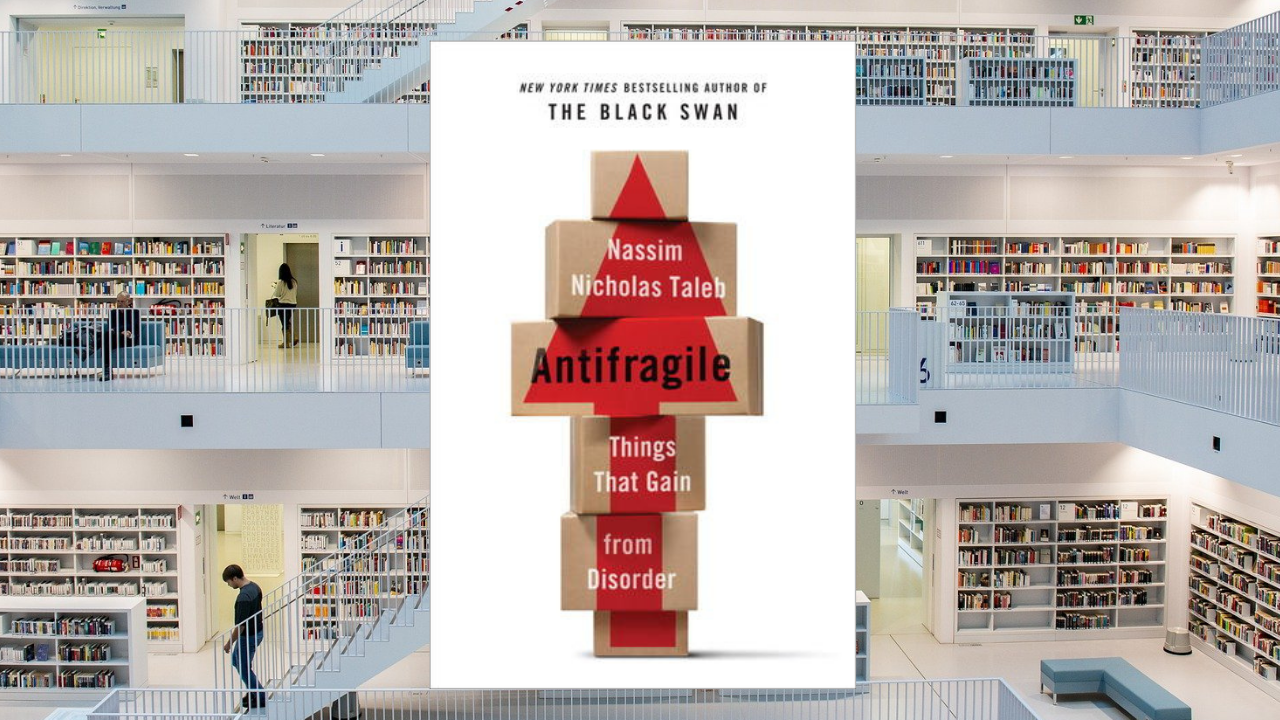
Antifragile, by Nassim Taleb
This book is quite difficult (at least it will be for most people), but it's absolutely phenomenal, and I highly recommend that you try reading it. "Antifragile" is a term that Taleb came up with to describe systems that "gain from disorder."
For example, your muscles are antifragile, because when stress is placed upon them in the form of weight training, your muscles recover and grow back bigger and stronger. The weights represent "disorder" or a "negative" external event, but that's exactly what makes your muscles grow.
Similarly, politicians are "fragile" to scandals, because it can ruin their careers; construction workers are "robust" when it comes to scandals, because even if they receive a ton of negative publicity for something, they can likely find another job two towns over relatively quickly where no one knows what they did in the past; and writers can be antifragile to scandals, because negative publicity will usually just help them sell more copies of their book.
“I want to live happily in a world I don’t understand.”
“You may never know what type of person someone is unless they are given opportunities to violate moral or ethical codes.”
“If you have more than one reason to do something (choose a doctor or veterinarian, hire a gardener or an employee, marry a person, go on a trip), just don’t do it. It does not mean that one reason is better than two, just that by invoking more than one reason you are trying to convince yourself to do something. Obvious decisions (robust to error) require no more than a single reason.”
This Book on Amazon: Antifragile, by Nassim Taleb
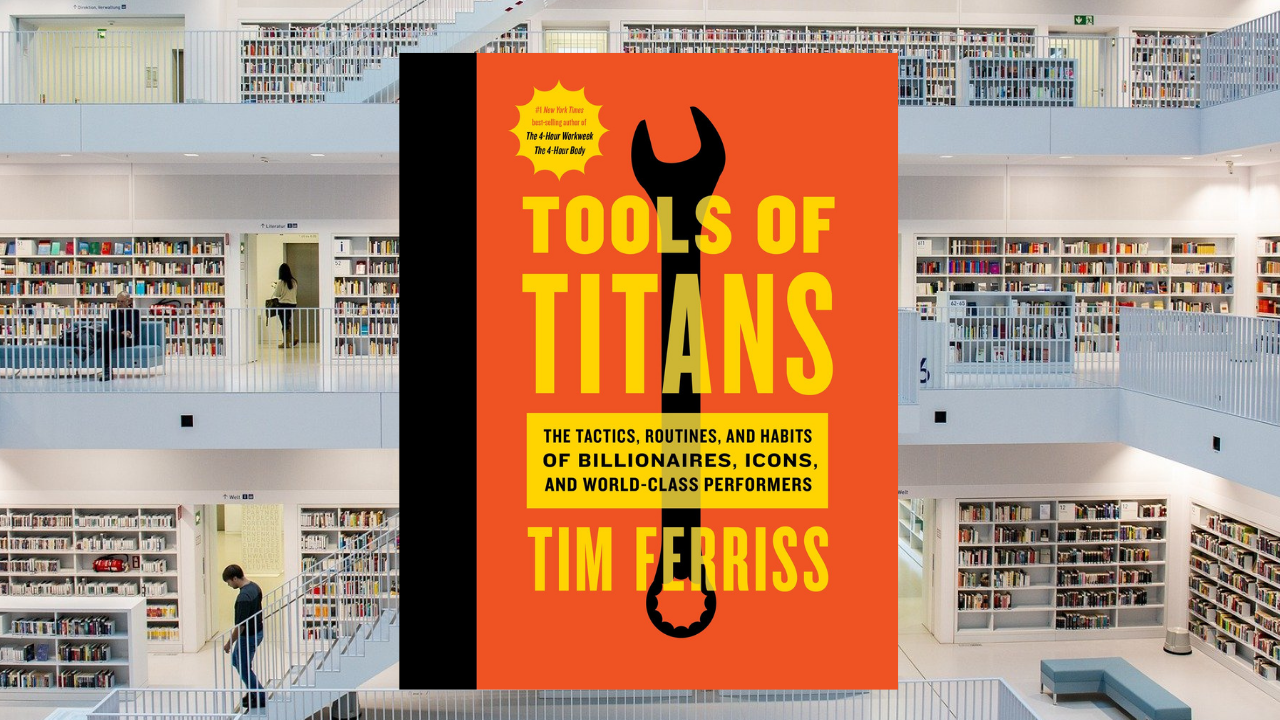
Tools of Titans, by Tim Ferriss
This is an excellent book derived from Tim Ferriss's podcast interviews and other special interviews with more than 200 world-class performers in various fields. He asks them unique, fascinating questions that almost always have some real-life usefulness and applicability that can make your life better.
For example: What do these people do in the first sixty minutes of each morning? What do their workout routines look like, and why? What books have they gifted most to other people? What are the biggest wastes of time for novices in their field? What supplements do they take on a daily basis?
“The world is changed by your example, not by your opinion.”
“Ours is a culture where we wear our ability to get by on very little sleep as a kind of badge of honor that symbolizes work ethic, or toughness, or some other virtue - but really, it’s a total profound failure of priorities and of self-respect.”
“If you want an average, successful life, it doesn’t take much planning. Just stay out of trouble, go to school, and apply for jobs you might like. But if you want something extraordinary, you have two paths: 1) Become the best at one specific thing. 2) Become very good (top 25%) at two or more things."
This Book on Amazon: Tools of Titans, by Tim Ferriss
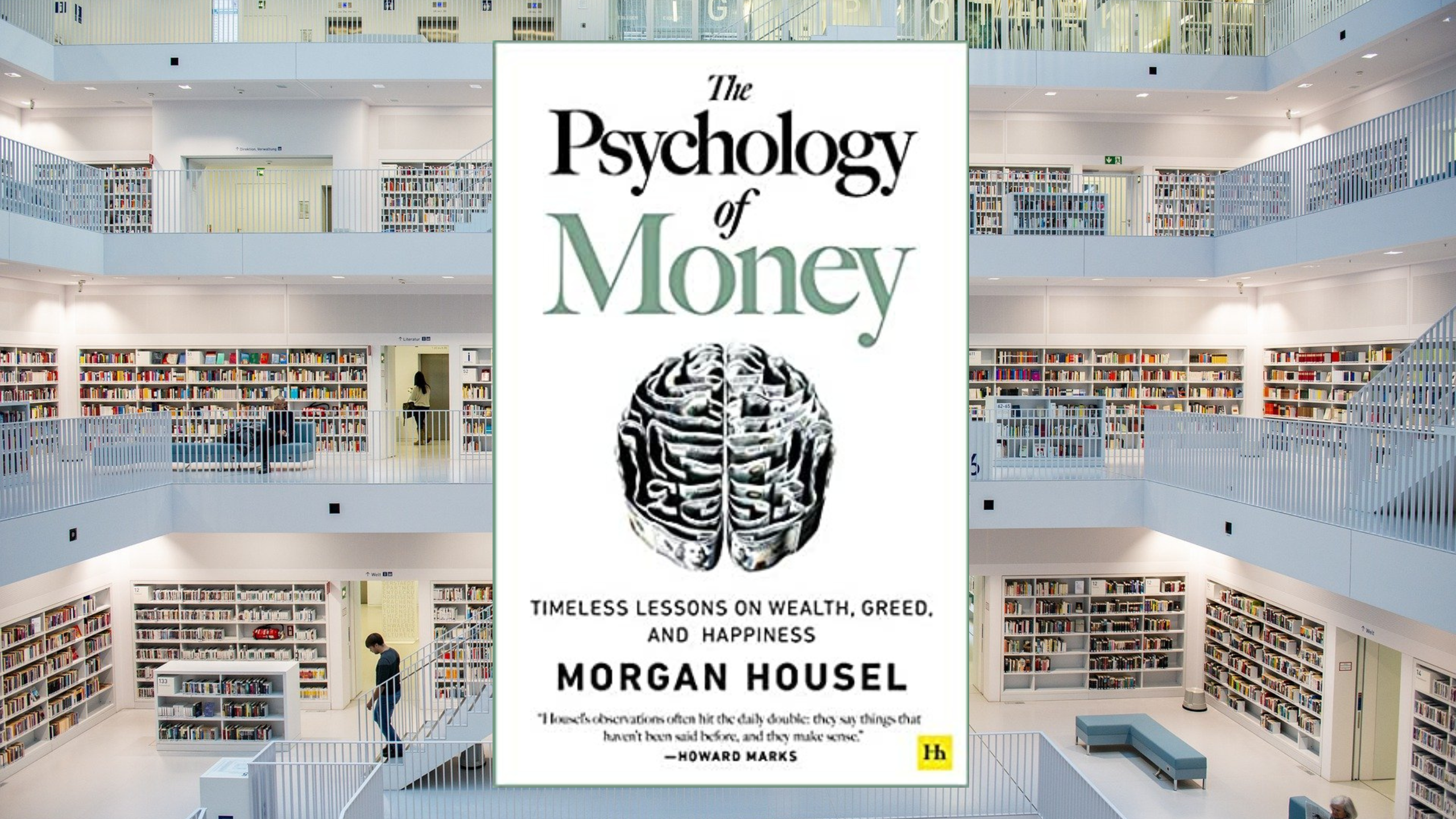
The Psychology of Money, by Morgan Housel
Doing well with money has a little to do with how smart you are and a lot to do with how you behave. Exploring exactly how this plays out in real life is Morgan Housel's project here, and in this book, he covers 20 of the most important logical flaws, biases, and causes of bad behavior that do the most to make the world of money such a circus.
“Money’s greatest intrinsic value - and this can't be overstated - is its ability to give you control over your time. To obtain, bit by bit, a level of independence and autonomy that comes from unspent assets that give you greater control over what you can do and when you can do it."
“People from different generations, raised by different parents who earned different incomes and held different values, in different parts of the world, born into different economies, experiencing different job markets with different incentives and different degrees of luck, learn very different lessons."
“Spending money to show people how much money you have is the fastest way to have less money.”
Read the Full Breakdown: The Psychology of Money, by Morgan Housel
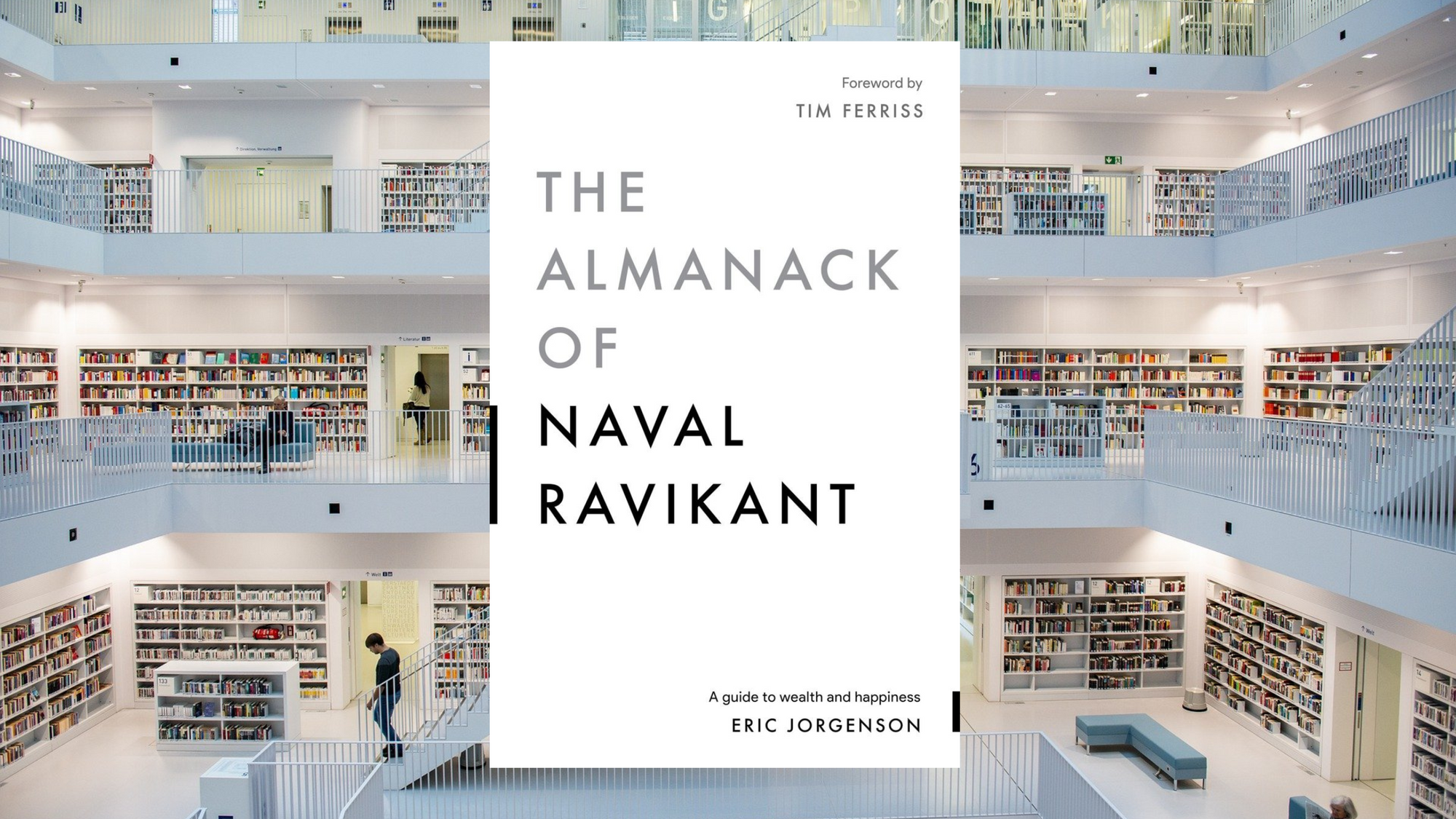
The Almanack of Naval Ravikant, by Eric Jorgenson
Being rich and happy are learnable skills. As in certain propositions in physics, starting conditions are very important, but one of the greatest lessons you'll learn from reading books like this one is that where you start off doesn't have to be where you end up. If there's a skill you lack, you can learn it; if there's a big scary problem looming over you, you can overcome it; if you want more out of life, you can have it.
“I was born poor and miserable. I’m now pretty well-off, and I’m very happy. I worked at those.”
"Let's get you rich first. I'm very practical about it because, you know, Buddha was a prince. He started off really rich, then got to go off in the woods."
“What if this life were the paradise we were promised, and we’re just squandering it?”
Read the Full Breakdown: The Almanack of Naval Ravikant, by Eric Jorgenson
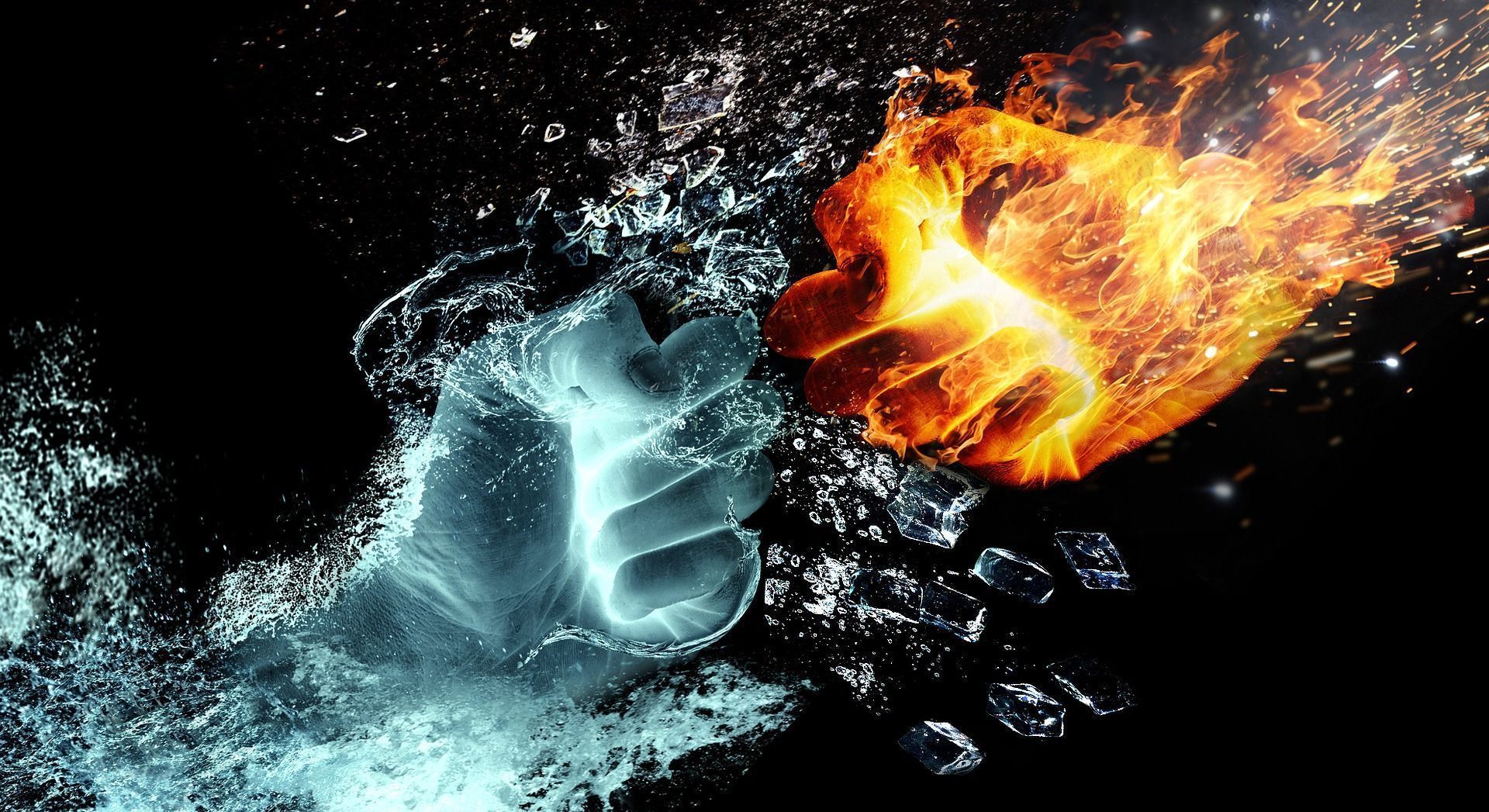
The View from the Opposition:
No one's ideas are beyond questioning. In this section, I argue the case for the opposition and raise some points that you might wish to evaluate for yourself while reading this book.
#1: There's an Opposite Aphorism for Everything
When you're looking to persuade someone (or yourself), you can usually find a proverb that supports your decision. On this page here, you'll find several examples of proverbs that openly contradict each other, and they're all commonplace sayings that many people profess to believe!
For example, you've got:
"Dig the well before you are thirsty."
"Don’t cross the bridge till you come to it."
And then:
"Actions speak louder than words."
"The pen is mightier than the sword."
And finally:
"Many hands make light work."
"Too many cooks spoil the broth."
So, it's entirely possible that you can read into many of Taleb's aphorisms whatever you want to see there. Many of them are also not obvious, and require some conscious thought in order to untangle. Use them more as spurs to thinking, rather than absolute truth.
"The test of a first-rate intelligence is the ability to hold two opposed ideas in the mind at the same time and still retain the ability to function.”
-F. Scott Fitzgerald

Action Steps:
So you've finished reading the book. What do you do now?
#1: Take It One Aphorism at a Time
It's really easy to read this book too fast and miss all the magic. It's not a long book whatsoever, but try and slow down a little bit and take a few minutes to ponder your favorite aphorisms, maybe as you're doing the dishes or walking around the block. More will be revealed to you!
#2: Try and "Break" an Aphorism
An interesting exercise is to try and find out where one of Taleb's aphorisms breaks down, or where it doesn't apply. "Breaking" an aphorism means to find some special situation in which it's no longer true any more, and a more complex, nuanced explanation or thought process is required.
#3: Come Up With Your Own
Try and formulate your own aphorism! It's fun! Off the top of my head, I could do something with the idea that it's never a good idea to trust anyone who says, "Trust me!" Yes, it could be better, but as a general theory of how the world works, it's not bad! Undoubtedly, you have your own special way of seeing, your own special vantage point on the world, and you could come up with something that captures complexity in an interesting, useful way.

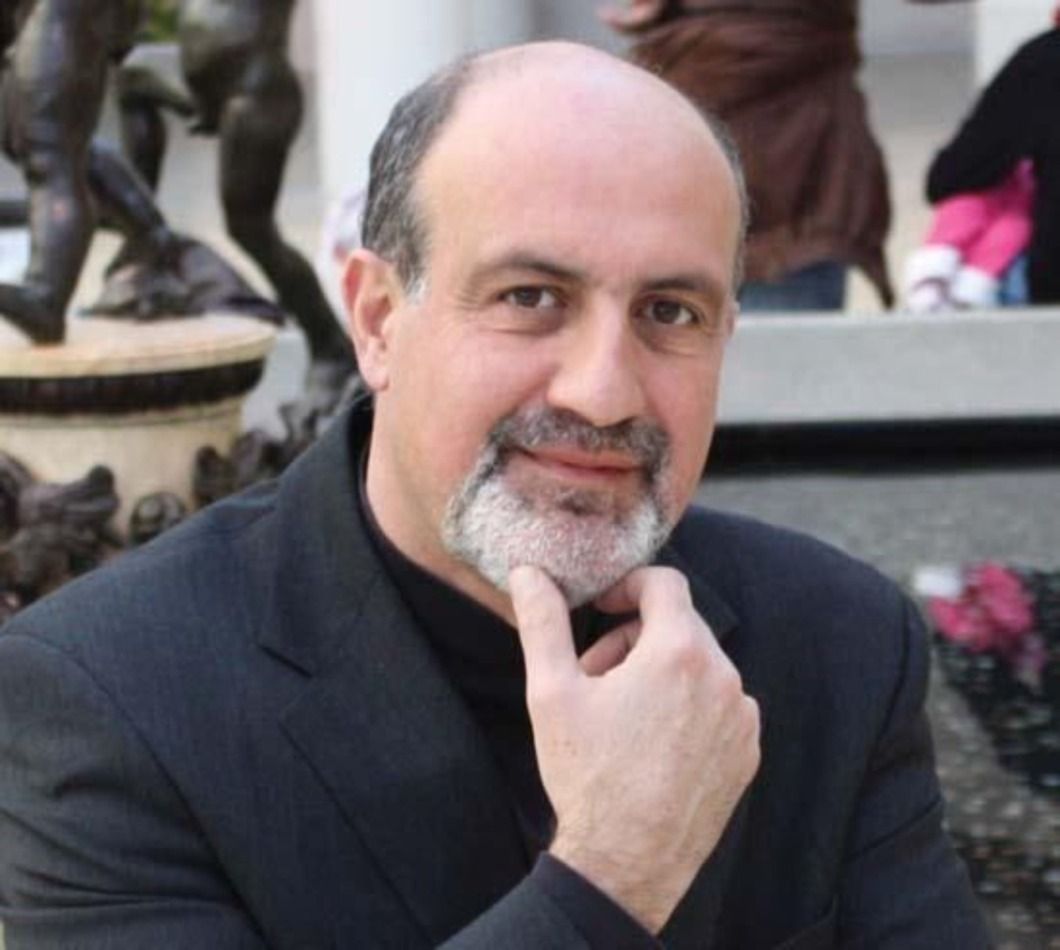
About the Author:
Nassim Nicholas Taleb is a Lebanese-American essayist, mathematical statistician, former options trader, risk analyst, and aphorist whose work concerns problems of randomness, probability, and uncertainty. The Sunday Times called his 2007 book The Black Swan one of the 12 most influential books since World War II.
Taleb is the author of the Incerto, a five-volume philosophical essay on uncertainty published between 2001 and 2018 (of which the best-known books are The Black Swan and Antifragile). He has been a professor at several universities, serving as a Distinguished Professor of Risk Engineering at the New York University Tandon School of Engineering since September 2008.
Taleb criticized the risk management methods used by the finance industry and warned about financial crises, subsequently profiting from the late-2000s financial crisis. He advocates what he calls a "black swan robust" society, meaning a society that can withstand difficult-to-predict events.
He proposes what he has termed "antifragility" in systems; that is, an ability to benefit and grow from a certain class of random events, errors, and volatility as well as "convex tinkering" as a method of scientific discovery, by which he means that decentralized experimentation outperforms directed research.
Additional Resources:
This Book on Amazon:
The Bed of Procrustes, by Nassim Taleb
If You Liked This Book:
Fooled by Randomness, by Nassim Taleb
The Black Swan, by Nassim Taleb
Skin in the Game, by Nassim Taleb


